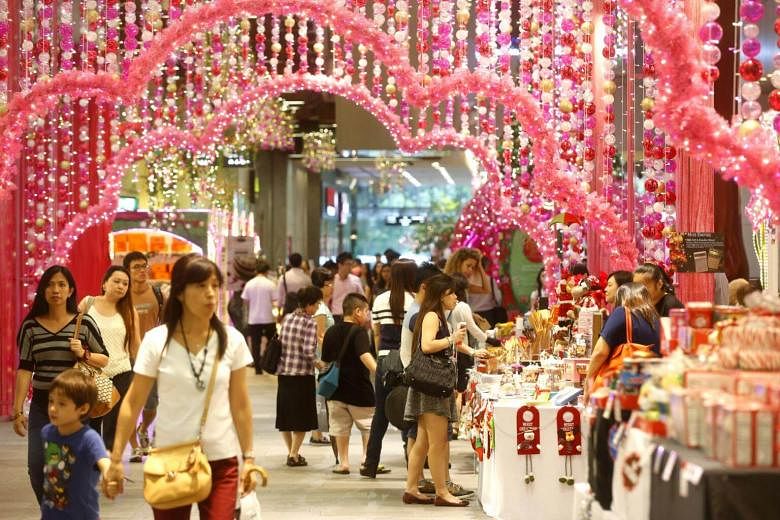You'd better watch out this Christmas - to stay in the pink of health, that is.
Doctors told The Sunday Times that they typically see a spike in patients after the festive holidays, many with problems related to eating or drinking too much.
Khoo Teck Puat Hospital (KTPH) and Changi General Hospital said their accident and emergency (A&E) departments are usually busier after festive periods.
"After holidays such as Christmas, New Year and Chinese New Year, it is normal to see a surge in attendance at the A&E," said Dr Lim Hoon Chin, chief of Changi General Hospital's accident and emergency department. "We see more patients with gastrointestinal complaints such as vomiting and diarrhoea due to overeating, or food intolerance and allergies."
Added Dr Philip Koh, who chairs Healthway Medical Group's medical board: "As family and friends gather to celebrate the holidays with zest, possible lack of sleep and fatigue... can lead to weaker and compromised immune systems."
Dr Goh E Shaun, an emergency medicine specialist at Raffles Hospital's 24-hour emergency department, sees a 10 to 15 per cent increase in visits during holiday periods. Some are the result of people heading to the hospital's emergency department as many general practitioners' clinics are closed.
Other cases involve patients with chronic health problems such as diabetes who might have over-indulged and were admitted with very high blood sugar levels. "This is usually the result of continuous bingeing rather than a single episode (of eating)," Dr Goh said.
This phenomenon is not unique to Singapore. Last month, financial news website Business Insider reported how hospitals around the United States see a spike in emergency room visits during the year-end holidays, which also coincide with the flu season.
A lack of sleep and cheating on doctors' orders can make them more susceptible to falling ill, it said. In Singapore, there are usually two flu seasons - one from May to July, and the other from December to February.
Associate Professor Malcolm Mahadevan, who heads the National University Hospital's emergency medicine department, said that for patients with pre-existing conditions, "it is best to get specific advice from their doctors as there may be special or specific precautions required".
KTPH senior dietitian George Toh said: "Practise mindful eating and consume festive foods - which are generally high in fat and sugar - in moderation."
For Dr Derek Li, a senior family physician at Raffles Medical, the spike comes after the New Year, just before people return to work or school. In particular, he notices an uptick in the number of school-aged patients during that period.
"They may not be very ill but... parents often bring them for consultations in the hope of curing any lingering acute illnesses before they return to school," he said.



